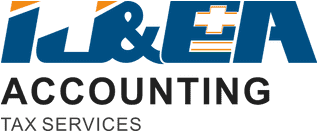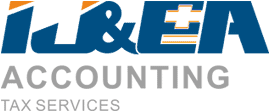What Is Structure Advice & Establishment?
Establishing a business can be a daunting task. When choosing to start your own venture, you need to look out for several aspects ranging from production and operations to marketing the final product. However, most amateurs overlook the importance of understanding and implementing the first step of starting your own business – establishing a structure.
In order to operate effectively, you need to opt for a business structure that suits your needs.
Common Types of Business Structures
Sole Trader:
In this form of business structure, you and your business are a unified entity. As a result, all the costs and legal responsibilities of your business fall on you, including financial losses and debts. You also enjoy full control over your business.
Most of the time, individuals start off with sole trader as it has low costs. In many situations, individuals wishing to start a “side business” also prefer to kick it off as sole traders.
In any case, it is important to know that sole traders must acquire an Australian Business Number (ABN) and may also require:
- Goods and Services Tax (GST)
- Business name registration
- Trademark or patent
Sole Trader is Best For:
- Newbies who are just stepping into the business world
- Individuals who are using their skills to set up a cost-effective business
- Individuals who are simply ‘testing the waters’ and wish to minimise business risks in case of failure
- Contractors, sub-contractors or freelance workers who work with multiple clients at once
Although sole trader is quite an easy structure to start off with, it comes with its own downsides as well.
Cons Of Sole Trader
- Absolute unity between the owner and the business entity, which puts all personal and business assets in a vulnerable spot in case of trading failure
- The sole trader is required to pay a tax at their marginal personal tax rate
Partnership:
In this form of business structure, two or more than two individuals can develop a group and register their business. Partners are required to share profits and losses. Partners also enjoy full control over the business.
While partnerships are also low-cost business ventures, there is a key element to remember when establishing them – the Partnership Agreement.
Conforming to the Partnership Act 1891 (Qld), a legal document is procured between all the partners which indicates the important aspects of running the business. Some of the important aspects are:
- Designation, duties and rights of each partner
- Distribution of the profits and how this will be achieved
- Terms of agreement in case a partner decides to quit the business or resign from the partnership
- A prospective business plan in case a partner decides to leave
It is also advised to seek consultancy and advice from professionals in order to minimise your risks before a partnership is established.
Partnership Is Best For
- Two individuals who are teaming up to kickstart a business venture
- Professionals who are combining the services they offer such as consultants
- Individuals who wish to start a low-risk and low-cost business venture, which can easily be terminated by either or both the parties
While partnership works quite well if the parties working together have strong teamwork, it can also often lead to failure.
Cons of Partnership
- While all partners share assets and any forms of monetary gains from the business, they are also liable to sharing losses as well as surrendering personal assets in case the business fails to pay its debts back. This is applicable even if it is the fault of one partner
- Loss of autonomy of an individual as the business is shared with multiple partners, often leading to feeling a loss of independency and control
- Other emotional issues that may arise from disagreements or one partner not taking responsibility of their workload, leading to resentments and etc
Company:
In this form of business structure, you and your business are separate entities. A company entails higher costs and must abide by reporting regulations. There is no sole owner of a company, rather, it is operated by directors and shareholders. However, directors of a company are still legally responsible for the company’s activities.
Companies serve the interests of shareholders well in terms of asset protection. This is because they have ‘limited liability’, which means that shareholders do not account for the company’s debts. Rather, it is the company’s and the directors’ responsibility to pay off those debts. This means that shareholders are not required to pay the company’s liabilities through their personal assets.
For example, if a company fails to repay the creditors, the shareholders will not be required to sell their personal property in order to pay the business creditors.
In addition, companies do not have a stringent shareholder agreement. This allows the flexibility in the entry and exit of new and old members through the purchase or selling of shares.
However, in some cases, shareholders may have a meticulous, shareholder agreement document in place which lists out:
- The rights and obligations of existing and new shareholders
- The criteria of profit division
- The method of voting during annual board of directors’ and shareholders’ meetings
There are a lot of other aspects that may be included in a shareholder agreement. However, it is advised to consult professionals for this purpose in order to make sure that all legal formalities are met and the interests of shareholders remain legally protected.
A Company Is Best For
- Successful sole traders or partnerships now expanding their businesses
- Startup ventures aiming for massive business growth
- Businesses who hire or are rapidly hiring multiple employees
- Businesses who have or are wishing to enlist as private or public limited companies, allowing their shares to be purchased and owned by ‘non-founders’
Like any other business structure, companies have their fair share of disadvantages as well.
Cons of Companies
- Companies are quite expensive to set up. Since the initial costs are so high to set them up, the failure of companies often leads to significant setbacks
- Loss of autonomy by founders are company decisions are led by board of directors
Trust:
A trust establishment is a pricey endeavour since there are intricate legal requirements such as a formal deed of operations. The trustee is legally accountable for the functioning of the trust and could vary from individual to organisation.
In simple terms, a trust is a form of business relationship in which the person trusted i.e. the trustee, conducts business procedures and transactions on behalf of others i.e. beneficiaries. This is why a trust has no fixed form. Rather, it can vary from a unit trust to a family trust.
Since there are many types of trusts, let’s look at the 2 major ones.
A Family Trust Is Good For
- Entrepreneurs who wish to secure their families by safeguarding their assets and minimise tax from their income
- Typically established by a couple or family head
- Small business owners and startups who expect a high annual profit target
- Those looking for ease of tax, especially small business owners and startups
A Unit Trust Is Good For
- People who wish to establish a trust with more than one owners
- Those entrepreneurs who may not be family members but wish to establish a trust together
- Entrepreneurs who wish to attain some flexibility in the trust, and can add or remove owners later on
- Individuals who actually wish to deal with their own tax liabilities
It is important to consult professionals before going forth with this structure.
A Trust Requires
- Customised structuring advice, catering to your business needs
- Trust deeds to protect the trustee’s interests and establish the duties and rights of the trustee to and from the beneficiary
- An ABN for its business operations.
Why do you Need Structure Advice & Establishment Services From Experts?
Establishing a business structure is crucial for the running of your venture. However, since there are different legal requirements for each structure, it is important to seek advice and consultation from professionals.
Setting up your business structure with a professional’s structure advice will help you because:
- They will analyse your business goals and come up with a structure that suits your needs
- They will find a suitable structure that optimise your tax position and expands your net profits while safeguarding your assets
- Along with structure advice, they will also provide you with effective business strategies to help you grow your business
- They will also shed light on other accounting areas of your business that align with your business structure
We at IJ & EA Accounting Tax Services aim to streamline your business operations.
From viability and business structure study to setup, planning, cash flow forecasting and offering tax advice, our experts enable you to establish and operate your business efficiently.






